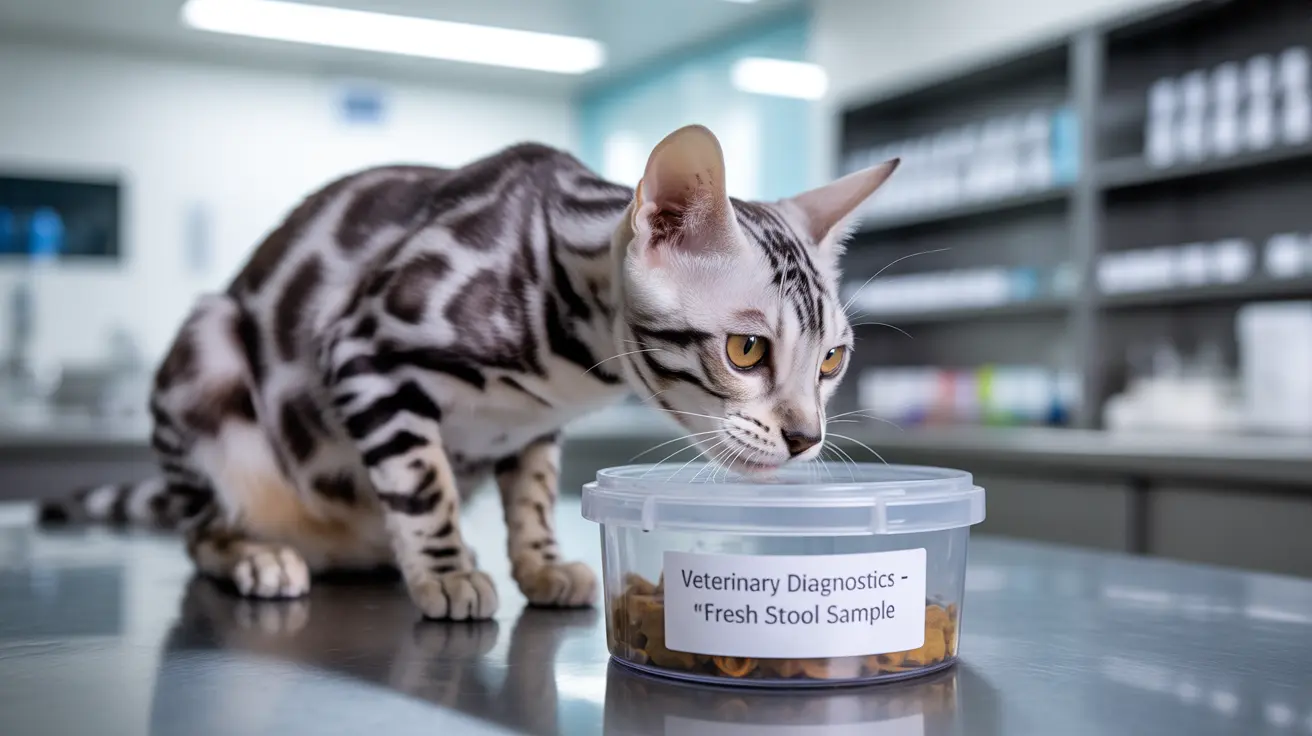Why Cat Stool Sample Testing is Essential
Fecal testing serves as a vital diagnostic tool in veterinary medicine. These tests can reveal the presence of harmful parasites, bacterial infections, and other gastrointestinal issues that might otherwise go unnoticed. Regular testing is particularly important because many cats show no obvious symptoms even when infected with intestinal parasites.
Furthermore, some parasites found in cat feces can pose risks to human health, making routine testing an important aspect of both pet and family health care. Early detection through proper stool sample analysis allows for prompt treatment and better health outcomes.
How to Collect a Cat Stool Sample
Collecting a proper cat stool sample requires attention to detail and timing. Here's what you need to know:
Timing and Storage
- Collect the sample within 24 hours of your vet appointment
- Store in a clean, sealed container
- Keep refrigerated but not frozen
- Avoid exposure to extreme temperatures
Collection Methods
- Use a clean, disposable plastic spoon or similar tool
- Collect approximately 2-5 grams (about the size of a sugar cube)
- Avoid contamination with litter or debris
- Place in a leak-proof container
Understanding the Testing Process
Veterinarians employ several methods to analyze cat stool samples:
Fecal Flotation
This common technique involves mixing the stool sample with a special solution that causes parasitic eggs to float to the surface, making them easier to identify under a microscope.
Direct Microscopic Examination
Fresh samples are examined directly under a microscope to look for active parasites, eggs, and other abnormalities.
Advanced Testing Methods
Some cases may require specialized tests such as PCR analysis or culture studies to identify specific pathogens or conditions.
When to Get Your Cat's Stool Tested
Regular testing schedules typically include:
- Annual testing for healthy adult cats
- Every 3-4 months for kittens
- Immediate testing when symptoms appear
- More frequent testing for outdoor cats or those in multi-pet households
Frequently Asked Questions
How do I collect and store a cat stool sample properly for accurate fecal testing?
Collect a fresh sample using a clean container, ensuring it's free from litter contamination. Store it in a sealed container in the refrigerator for no more than 24 hours before testing.
What types of parasites and health issues can a cat fecal test detect?
Cat fecal tests can detect various parasites including roundworms, hookworms, tapeworms, and Giardia. They can also reveal signs of bacterial infections, digestive issues, and some inflammatory conditions.
How often should I have my cat's stool tested for parasites and other intestinal problems?
Healthy adult cats should have annual fecal tests, while kittens, outdoor cats, and those with health issues may need more frequent testing, as recommended by your veterinarian.
Why is fecal flotation or centrifugation preferred for diagnosing parasites in cats?
These methods are preferred because they concentrate parasitic eggs and cysts, making them easier to detect under microscopic examination, resulting in more accurate diagnoses.
Can intestinal parasites found in cat feces be transmitted to humans, and how does testing help prevent this?
Yes, some parasites found in cat feces are zoonotic, meaning they can infect humans. Regular testing helps identify these parasites early, allowing for prompt treatment and preventing transmission to human family members.
Conclusion
Regular cat stool sample testing is a fundamental aspect of responsible pet ownership. By understanding the importance of proper collection and testing procedures, you can help ensure your cat's optimal health while protecting your family from potential zoonotic infections. Always follow your veterinarian's recommendations for testing frequency and maintain good hygiene practices when handling cat waste.






